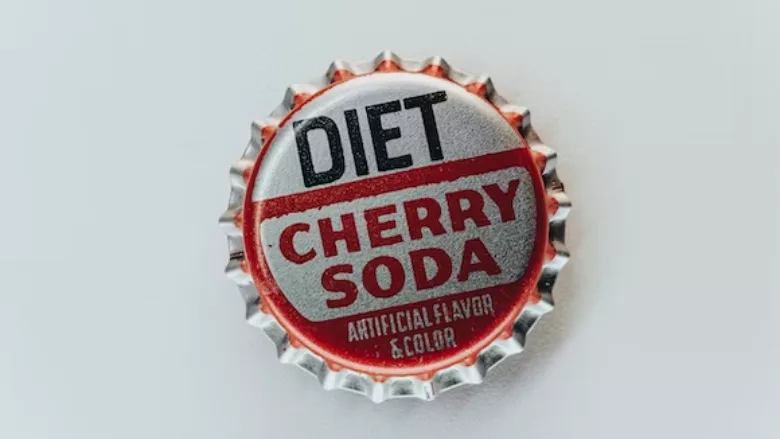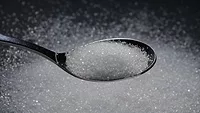WHO Confirms Aspartame as Possible Carcinogen, but Acceptable Daily Intake Remains Unchanged
However, FDA and industry groups disagree with WHO's determination.

Image credit: Lance Reis via Unsplash
The World Health Organization’s International Agency for Research on Cancer (WHO’s IARC) has officially declared popular artificial sweetener aspartame as “possibly carcinogenic to humans” based on limited evidence. At the same time, the acceptable daily intake (ADI) of 40 milligrams per kilogram (mg/kg) of body weight remains unchanged, having been reaffirmed by the Joint Food and Agriculture Organization of the United Nations/WHO Joint Expert Committee on Food Additives (JECFA).
Meanwhile, not all officials agree with IARC's determination; specifically, the U.S. Food and Drug Administration (FDA) has expressed its dissent. Industry groups have also shared their disapproval with the conclusion.
IARC and JECFA conducted independent but complementary reviews to assess the potential carcinogenic hazard and other health risks associated with aspartame consumption. The present evaluation represented the first time that IARC has evaluated aspartame and the third time for JECFA. After reviewing the available scientific literature, both evaluations noted limitations in the available evidence for cancer, among other health effects.
IARC classified aspartame as possibly carcinogenic to humans—Group 2B—on the basis of limited evidence for cancer in humans; specifically, for hepatocellular carcinoma, which is a type of liver cancer. There was also limited evidence for cancer in experimental animals and limited evidence related to the possible mechanisms for causing cancer.
However, JECFA concluded that, based on available data, there is no sufficient reason to change the previously established ADI of 0–40 mg/kg body weight for aspartame. The committee reaffirmed that it is safe for a person to consume aspartame within the ADI. For reference, an adult weighing 70 kg would need to consume more than 9–14 cans of diet soda containing 200–300 mg of aspartame per day to exceed the ADI, assuming no additional intake of the chemical from other food sources.
IARC classifications reflect the strength of scientific evidence as to whether an agent can cause cancer in humans, but they do not reflect the risk of developing cancer at a given exposure level. The strength of evidence classification in Group 2B is the third highest out of four levels, and it is generally applied either when there is limited, but not convincing, evidence for cancer in humans or convincing evidence for cancer in experimental animals, but not both.
Both IARC and JECFA believe further research is required to increase understanding of the carcinogenicity of aspartame, including higher-quality studies with longer follow-up and repeated dietary questionnaires in existing cohorts. JECFA calls for randomized controlled trials, including studies of mechanistic pathways relevant to insulin regulation, metabolic syndrome, and diabetes, with relation to carcinogenicity.
Looking for quick answers on food safety topics?
Try Ask FSM, our new smart AI search tool.
Ask FSM →
IARC and WHO will continue to monitor new evidence and encourage independent research groups to develop further studies on the potential association between aspartame exposure and consumer health effects.
FDA Disagrees With IARC's Determination
However, not all regulatory bodies are in agreement with IARC. FDA released a statement after IARC's announcement expressing its dissent. The agency stated that "...aspartame being labeled by IARC as 'possibly carcinogenic to humans' does not mean that aspartame is actually linked to cancer."
According to the agency, FDA scientists reviewed the scientific information included in IARC’s review in 2021 when it was first made available and identified significant shortcomings in the studies on which IARC relied. FDA argued that "...aspartame is one of the most studied food additives in the human food supply," and stated that agency scientists do not have safety concerns when aspartame is used under the approved conditions. The agency also pointed to aspartame's approval for use by Health Canada and the European Food Safety Authority (EFSA).
Specifically, FDA disagrees with IARC's conclusion based on its evaluation of the same studies that IARC relied on to support its findings. The agency identified "significant shortcomings" in the design, conduct, reporting, and interpretation of the animal study used to support the IARC’s conclusion, and found that the reliability and interpretation of the study outcome was compromised by its shortcomings and uncontrolled variables, such as the presence of infection in the test animals. FDA shared that it has reviewed other studies that do not show evidence of carcinogenicity for aspartame.
Additionally, FDA explained that, in August 2022, the U.S. Department of Health and Human Services sent a letter to WHO on behalf of the nation that outlined concerns with WHO and JECFA's review of aspartame. The letter recommended that JECFA was better suited to conduct the review because of its expertise in reviewing food additives, among other reasons. FDA notes that IARC conducted a hazard assessment for aspartame, which is different from JECFA’s risk assessment of the chemical’s current levels of use. For example, IARC does not factor dosage or route of exposure into its classifications, which are variables that help assess health risk.
Industry Groups Unhappy With Conclusion
Industry groups have also shared their disagreement with IARC's determination. For example, the American Beverage Association stated simply, "Aspartame is safe." The association pointed to 40 years of science and regulatory approval by more than 90 food safety authorities around the world supporting the acceptability of aspartame for human consumption.
The Calorie Control Council also explained why it disagrees with IARC in a statement. The group argued that "IARC is not a regulatory agency or food safety authority. IARC looks for substances that could potentially cause cancer without considering actual dietary intake." To support its statement, the council provided examples of other activities widely believed to be safe that have been classified as "possibly carcinogenic" by IARC. The group believes that the determination of aspartame as "possibly carcinogenic" is potentially damaging to individuals looking to reduce their sugar intake for weight control or due to conditions such as diabetes.
Update, July 14, 2023: The story has been edited to include the opinions laid out in FDA and industry statements.








